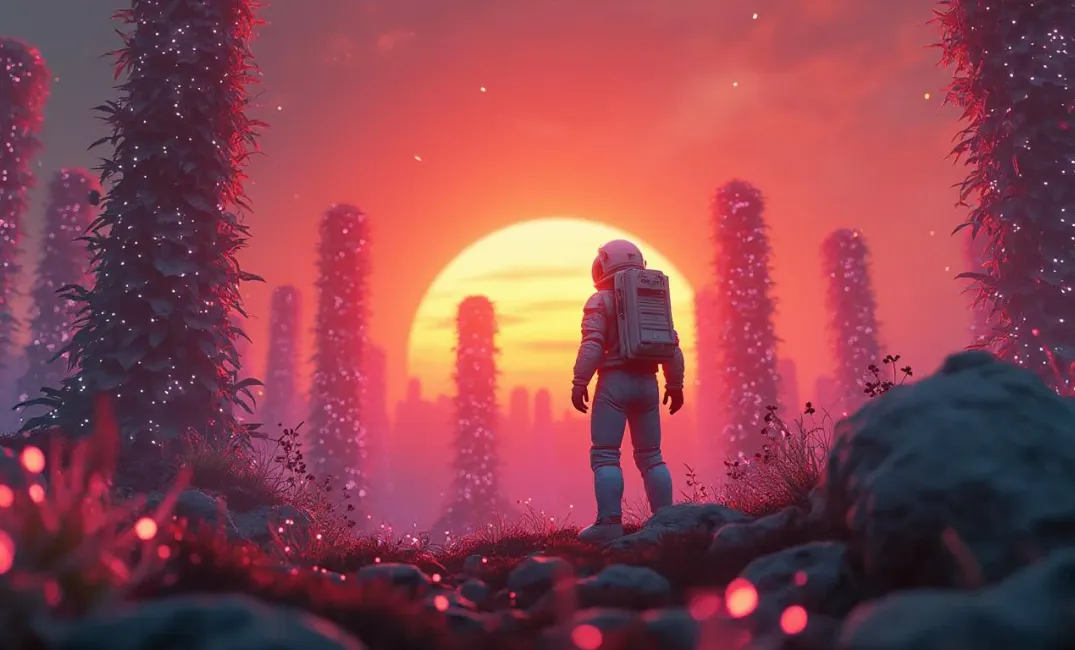Introduction: Mapping the Future with Imagination
"Science fiction is no more written for scientists than ghost stories are written for ghosts." — Brian Aldiss
Science fiction, as a genre, is a testament to the boundless creativity of the human mind. It stretches the limits of imagination while exploring conceivable futures, hypothetical societies, and existential questions that science alone cannot fully encompass. Often regarded as a mirror reflecting humanity's hopes, fears, and dreams, science fiction intertwines narrative with speculative inquiry. Today, we embark on a journey through the legacy of science fiction—a universe where creativity meets possibility, offering reflections on what humanity could become.
The Origins and Evolution of Science Fiction
Ancient Visions and Mythological Narratives
- Earliest Imaginings: Long before the term "science fiction" was coined, ancient mythologies and narratives offered imaginative visions of the cosmos and future worlds. Epic tales like the "Mahabharata" contain fantastical elements, while Greek myths feature gods, monsters, and celestial voyages.
- Proto-Science Fiction in Classical Literature: Works such as Lucian's "True History," which depicted space travel and alien encounters in the 2nd century, illustrate early explorations of fantastical themes in literature, foreshadowing future sci-fi narratives.
The Birth of Modern Science Fiction
- Gothic Foundations: Mary Shelley's "Frankenstein" (1818) is often heralded as the first true science fiction novel, combining gothic elements with speculative science, probing themes of creation and ethical responsibility.
- Victorian Explorations: H. G. Wells and Jules Verne's works in the late 19th century popularized science fiction, imagining wondrous technologies like time machines and submarines while exploring human nature amid technological advancement.
Golden Age of Science Fiction: Imagining Tomorrow
Defining Concepts and New Worlds
- Pioneering Voices: The 20th century saw the genre flourish with authors like Isaac Asimov, Arthur C. Clarke, and Ray Bradbury defining the "Golden Age" of science fiction. Their stories explored space travel, robotics, and dystopian futures, probing the ethical and societal implications of technological progress.
- Classic Themes: Works like Asimov's "Foundation" series and Clarke's "2001: A Space Odyssey" created iconic frameworks for understanding the tension between human fallibility and technological prowess.
Societal Reflections and Critiques
- Dystopian Realities: Novels such as George Orwell's "1984" and Aldous Huxley's "Brave New World" critiqued governmental control and societal evolution, offering cautionary tales about future totalitarian states.
- Environmental and Ethical Exploration: Frank Herbert's "Dune" examined the intersection of politics, ecology, and religion, while Ursula K. Le Guin's work challenged gender norms and societal structures, expanding the scope of speculative fiction.
New Frontiers: Science Fiction in the Late 20th Century
Diversification and Inclusion
- Emerging Voices and Themes: The latter half of the century witnessed a diversification of voices in science fiction. Writers like Octavia Butler and Samuel R. Delany brought racial and gender perspectives to the genre, enriching its narratives and expanding its horizons.
- Cyberpunk Revolution: The cyberpunk subgenre, exemplified by William Gibson's "Neuromancer," introduced gritty, high-tech futures where digital realms connect and dominate society, reflecting anxieties about corporate power and digital identity.
The Visual Expansion: Film and Television
- Cinematic Visions: Landmark films such as "Star Wars" and "Blade Runner" translated science fiction's themes and dreams into visual spectacles. These films showcased a synthesis of narrative and special effects, widening the audience and impact of sci-fi concepts.
- Televised Narratives: Series like "Star Trek" and "Doctor Who" became cultural phenomena, exploring humanistic themes and asserting science fiction's role in addressing philosophical questions and moral dilemmas.
The Digital Age: Science Fiction Today
The Rise of Interactive and Immersive Storytelling
- Video Games and VR: As technology advances, science fiction's influence extends into interactive media. Titles like "Mass Effect" and "Halo" allow players to engage with complex narratives in immersive environments, offering new dimensions of storytelling.
- Virtual Reality: VR experiences fuse fiction and reality, enabling users to explore fictional universes and examine themes of identity, choice, and consequence in first-person perspectives.
Futuristic Themes and Present Challenges
- Exploring AI and Post-Humanism: Contemporary science fiction frequently examines the rise of artificial intelligence and transhumanism, exploring the potential and peril of these developments on human identity and consciousness.
- Climate Fiction (Cli-Fi): Addressing current environmental concerns, cli-fi examines potential futures shaped by climate change, advocating awareness and contemplation through speculative narrative.
Science Fiction's Impact on Culture and Thought
Influencing Real-World Innovation
- Technological Inspiration: Science fiction has inspired numerous technological advancements. Concepts like satellites and smartphones have origins traceable to imaginative works, showcasing the genre's potential to drive scientific curiosity and ambition.
- Cultural and Philosophical Impacts: Sci-fi narratives provoke thought on moral, ethical, and existential questions, influencing cultural discourse and societal values. Works like Philip K. Dick's "Do Androids Dream of Electric Sheep?" challenge perceptions of reality and consciousness.
Shaping Future Generations
- Educating and Inspiring: As a beacon of imagination, science fiction nurtures young minds to ponder limitless possibilities, fostering creative thinking and scientific inquiry essential for innovative breakthroughs.
- Global Dialogue: With a universal language of wonder and what-if, science fiction facilitates global dialogue on pressing issues, transcending cultural and linguistic barriers through shared narratives and visionary futures.
Conclusion: Beyond the Stars and Into the Imagination
"The only way of discovering the limits of the possible is to venture a little way past them into the impossible." — Arthur C. Clarke
Science fiction is a boundless realm where humanity dares to dream beyond the known, crafting universes brimming with possibilities and questions. As we contemplate our future amidst the stars, science fiction invites us to explore not only new worlds but also our innermost selves—the fears, dreams, and hopes that shape our existence.
In this universe of imagination, may we continue to forge paths both on and beyond Earth, inspired by the stories that dare us to dream big, address profound questions, and embrace...
SPECULATIVE FICTION, IMAGINATION, SCIENCE FICTION, SOCIETAL REFLECTIONS, FUTURISTIC THEMES, LITERATURE, CULTURAL IMPACT

